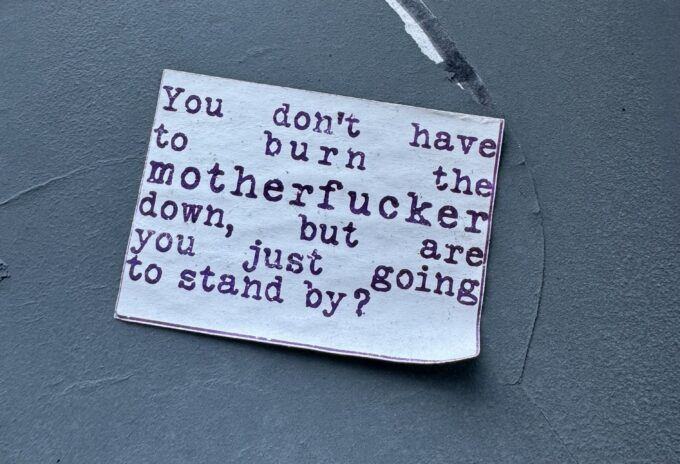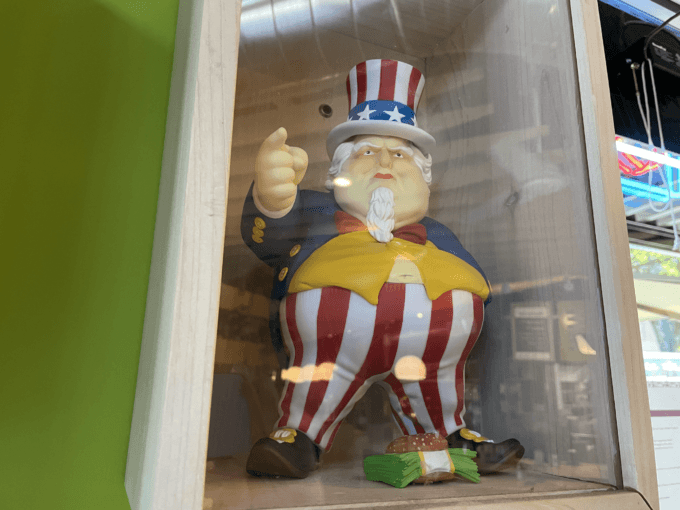
what they need to know
Published on http://www.counterpunch.org/
It has turned out that the Democratic Party is the party that would fall apart after Trump’s election, although, like the odds on the election itself, most pundits pictured the Republican Party destroyed by Trump’s election.
It was always in the cards that a mogul president, regardless of how quirky, would meld with Republicans intent on keeping the oligarchy flourishing. It was also in the cards that without the Rust Belt working class in the Heartland, the Democrats were left with the margins and so at the margins of any electoral victory.
One aspect of marginal lives is that their personal life difficulties drown out any interest in politics or any sense of gratitude to the politicians fighting to bring “equal justice” to them. The long range bet is that eventually a Latino minority will pay back the Democrats for all they have done for them. However, some 25% did not feel that obligation in the 2016 election and voted for Trump. This may very well be a meritocratic, professional Latino class identifying not with ethnicity but with class status. Also, 64% of non-college aged white women and 45% of college aged white women voted for Trump, apparently not much affected by Trump’s predatory, sexist behavior nor by Hillary’s sex.
A cultural left focused on equal rights for minorities and women, the so-called identity politics, can be traced to a deep rooted love of individual freedom, a freedom always threatened by a societal order of things. Happiness becomes a competitive, personal achievement, not by chance a nice fit for a competitive economic system rather than one based on mutual aid and societal interdependence. Social happiness seems always within the American cultural imaginary to be a socialist plot. Society, at best, is a loosely woven fabric designed to displace unity by otherness and difference.
In all this, Democrats are no more than collaborators with Republicans who welcome the Liberal/Progressive attention on individual rights and not economic rights, the shadow of FDR’s Economic Bill of Rights haunting conservative politics. But the Democrats are collaborators also in so far as their campaign on the behalf of marginalized minorities, including Latinos, Blacks, immigrants and the LGBTQ community, mobilizes the conservative campaign to attract everyone who feels embittered and cheated by Liberal cultural politics. A white middle class heritage of being at the center in American culture no longer registers with the Democratic Party, who has placed what Jordan Kraemer calls “the hip creatives” alongside marginal minorities at a new center. (“The Cultural Anxiety of the White Middle Class,” Counterpunch)
Whether or not the Trump base knew that their woes had begun with Reagan’s weird faith in a plutocracy somehow “floating all boats,” or with Bill Clinton’s giving up the fight with an emerging plutocratic order, or the cost of George W’s contrived wars to everyone but his friends, The Haves and Have Mores, by the 2016 election they were ready for anyone but a politician.
Reagan, a movie and TV celebrity, had populist appeal, a salesman’s charisma that fit neatly into the American approach to politics, namely, give us personality, and hold the ideas. You didn’t need to read the fine print of what he was up to but Reagan’s “It’s Morning Again in America” had as much populist appeal as Obama’s “Yes, We Can” and Trump’s “Make America Great Again.” Personality and profit always put ideas and interpretation in the back seat in American politics.
Bill Clinton preferred to lean into an already reckless capitalism than take it on, leaning so much into the neoliberal program that he was the one to declare “The era of big government is over,” adding a Democratic voice to the long standing demonization of a regulating, entitlement, anti-monopoly empowered Federal government conducted by the Republicans. But he exuded a down home, populist, bonhomie campaign style while George H.W. Bush exuded the style of a patrician lost in Kmart.
George W. Bush captured the look and tone of a regular guy with a beer giving a “What have we here?” look at an over-achieving Al Gore walking in and announcing like a twit that he is presidential. Dubya exuded the charisma of a guy like you who was not much into politics, and preferred doing anything but hanging around politicians and Washington DC. He seemed not any different than the regular Joe, except he stood behind the biggest score of the Military-Industrial Complex than ever before in U.S. history and deepened the pockets of the oligarchs and left the wage earner worrying about the national debt, as if they could do anything about it.
Obama fit the bill of a cool outsider, a newcomer representing the new millennium, a post-partisan and thus post-politics candidate for the highest political position in the country, who gave movie-grade speeches like a Hollywood actor. But it turned out, in the Trumpland view, that he was really the same old same old politician. Under the umbrella of Obama’s back and forth between “cool” disengagement and inept and at best tepid engagement, the meritocratic, professional, gentrified echelon of the Democratic Party focused on a cultural politics which brought the art of a “pivoting” politics to new heights. Whatever Obama and the Democrats pivoted toward, it did nothing to alleviate the collapsing economics of the middle and lower classes.
“Real wages in the United States have stagnated since the mid-1970s, contrary to expectations that real wages should raise in line with increases in productivity. Between 1973 and 2013, productivity in the United States grew by 74% whilst compensation for workers grew by 9% in the same period. The stagnation of real hourly wages has resulted in a Middle-class squeeze as increases in inflation and the cost of living exceeds the growth of real wages for members of the middle and lower classes.” (Wikipedia)
What is pivoted from we now see were those Americans Trump succeeded in reaching. Perhaps it felt good even to racists or just closet bigots when Obama won the 2004 election but from the perspective of the 2016 election it seems that Obama won because he reached a celebrity champion status, one that Trump also reached. The country was not looking for a black president; it was looking for someone who could make his or her lives great again. “Yes, we can!” was code for “Yes. I can!” a promise Trump did not code. Obama had no credentials beyond the anti-credentials disgusted Americans had come to look for, namely, an outsider, an interloper, a thorn in the side of the politics as usual primary opponent, Hillary Clinton, who, as expected, turned up again in the 2016 election.
Trump managed to outdo Obama as a political outsider. Obama had been a short time senator but Trump campaigned as a former Reality TV celebrity out to trample over politics as usual and he has managed to continue in that role. He remains as much at odds with political parties, the Congress, the judiciary, the intelligence community, the media, and every bastion of the “administrative State” as his constituents. At the core of his attraction for his followers is this political iconoclasm. He stands as an avatar of the fury of economically downsized Americans, a fury built up over past administrations, Republican and Democrat, which neither party is shaped to handle.
It does not matter that Trump polls low nationally or that he is a repulsive affront to those who enjoy a standard of living that allows them to reduce politics to who needs to bake a wedding cake, who can choose a bathroom, and who bullies whom online. We are here talking about a top 20% of the population. In a 2020 election, if Trump’s alive and he has not disappointed his base as their deconstructive force in Washington, then Republicans will vote for him, along with both Democrats and Republicans. What we know by now is that Trump is gifted in throwing sops to his supporters.
In special elections thus far, Democrats have missed reaching a Trump level of attraction, offering Jon Ossoff, “boy wonder” who in spite of 30 million dollars spent on his campaign left the electorate wondering where this boy came from, and Archie Parnell, “I’m no politician” kind of candidate who, true to his self-advertisement, turned out to be no kind of politician who could win an election.
If Democrats hope to attract some of Trump’s base, they need to revisit those places and times when they failed to act on behalf of not just a white discontents but wage earners, all those who don’t live on their investment dividends and interest. What they need to know now is that a political party cannot presume that a politics focused on individual rights will alter social and economic structures and institutions already shaping the consciousness of every individual.














